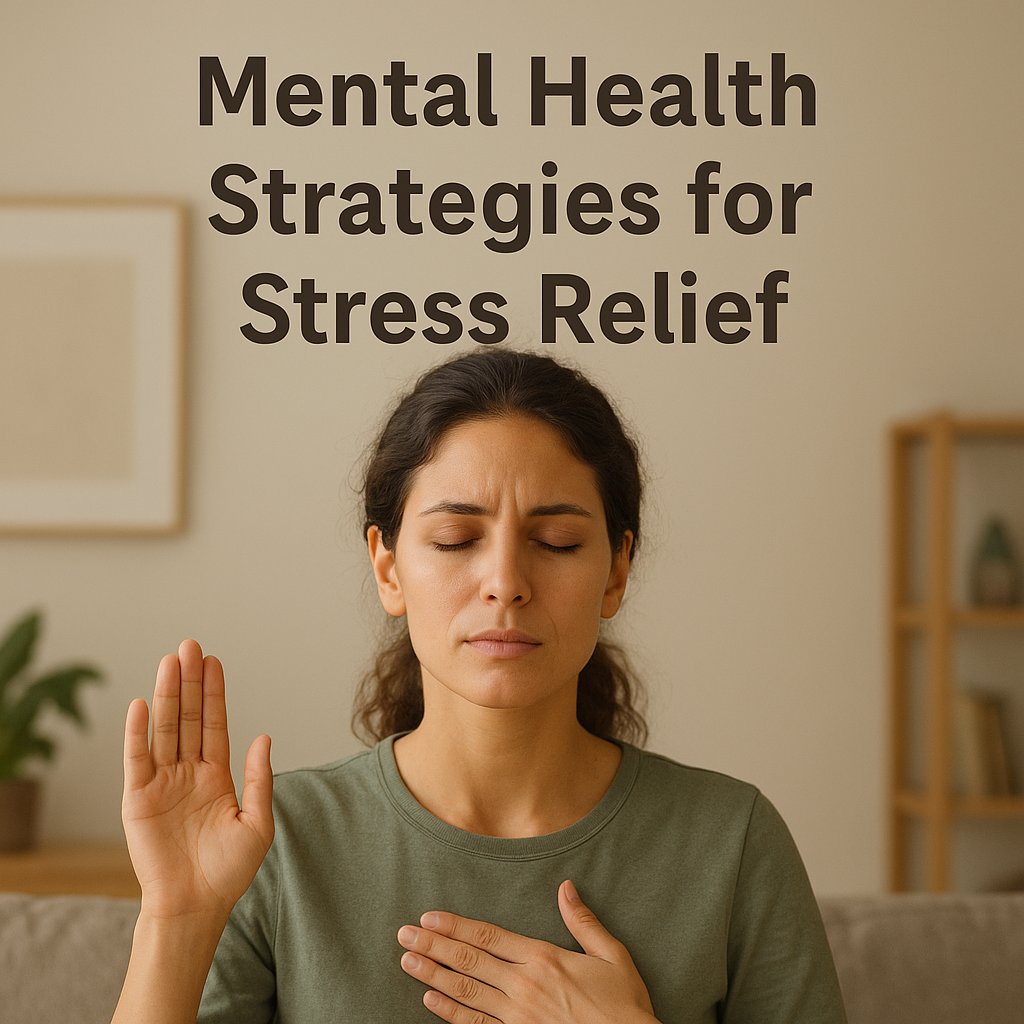Stress has become an almost constant part of modern life. The stress of everyday life can be overwhelming; between work deadlines and family life, monetary constraints, and medical issues, the demands of life and its pressures may seem intolerable. Although a bit of stress can be good and may even encourage you, in the long run, it can be devastating, both mentally and physiologically. Proper knowledge of the effective methods of mental health to relieve stress is important in ensuring that overall well-being is achieved and that balance in life is maintained.
-
Practice Mindfulness and Meditation
Mindfulness and meditation are effective tools that help to relieve stress and enhance mental clarity. Mindfulness will help you become more present to the present moment without feeling judgmental about your thoughts and feelings. Meditation, whether 10-15 minutes a day, can help relax the mind, reduce anxiety, and make you react in response to stressful situations instead of in a reactionary way that causes stress. Such practices as mindful walking, deep breathing, and guided meditation might be especially beneficial.
-
Engage in Physical Activity
Exercise is a powerful tool for stress relief. Physical activity releases endorphins, the body’s natural “feel-good” chemicals, which help boost mood and reduce stress. Whether it’s jogging, yoga, swimming, or even a brisk walk in your neighborhood, regular exercise can improve sleep quality, enhance focus, and build resilience against stress. For those struggling to find time, even short bursts of activity throughout the day can make a noticeable difference.
-
Maintain a Healthy Diet
Nutrition plays a crucial role in mental health and stress management. Diets rich in fruits, vegetables, lean proteins, and whole grains support brain function and mood regulation. Avoid excessive caffeine, sugar, and processed foods, which can contribute to anxiety and mood swings. Drinking enough water and maintaining balanced blood sugar levels also helps in keeping the mind clear and focused.
-
Prioritize Sleep
Sleep and stress are closely connected. Lack of sleep increases stress levels, while high stress can interfere with sleep quality. Developing a consistent sleep routine, avoiding screens before bed, and creating a calm sleeping environment can significantly improve restfulness. Even short naps during the day can provide temporary stress relief and mental rejuvenation.
-
Practice Deep Breathing Techniques
Deep breathing exercises are simple yet highly effective in reducing stress. Techniques such as diaphragmatic breathing, box breathing, or the 4-7-8 method help activate the parasympathetic nervous system, which promotes relaxation. Taking just a few minutes to focus on deep, slow breaths can lower heart rate, ease tension, and center your mind.
-
Connect with Others
Social support is vital for mental health. Talking to friends, family, or support groups about your stressors can lighten the emotional load and provide perspective. Feeling understood and connected reduces feelings of isolation and anxiety. Even brief social interactions, like a phone call or a coffee break with a colleague, can have a calming effect.
-
Set Realistic Goals and Boundaries
One major source of stress is overcommitting or setting unattainable goals. Learn to prioritize tasks, delegate when possible, and establish boundaries both at work and at home. Breaking down larger tasks into smaller, manageable steps can prevent overwhelm and help you feel more in control.
-
Engage in Relaxing Activities
Make time for hobbies and activities that bring joy and relaxation. Reading, painting, gardening, or listening to music can distract from stressors and promote a sense of accomplishment and happiness. Regular engagement in enjoyable activities can act as a buffer against stress and improve overall mood.
-
Seek Professional Help When Needed
Sometimes, stress can become unmanageable and may require professional intervention. Therapists, counselors, and mental health professionals can provide coping strategies, cognitive-behavioral techniques, and guidance tailored to your situation. Seeking help is a sign of strength and an essential step toward long-term stress management.
Conclusion
Stress is an inevitable part of life, but its impact on mental health can be minimized with the right strategies. By practicing mindfulness, staying physically active, maintaining a healthy diet, prioritizing sleep, and connecting with others, you can reduce stress and improve your overall well-being. Remember, small, consistent efforts often lead to the most significant results. Incorporating these mental health strategies for stress relief into your daily routine can help you live a calmer, more balanced, and fulfilling life. To schedule your appointment with the highest standard of care, visit Sahara West Urgent Care on our website, where you can also explore more informative blogs



